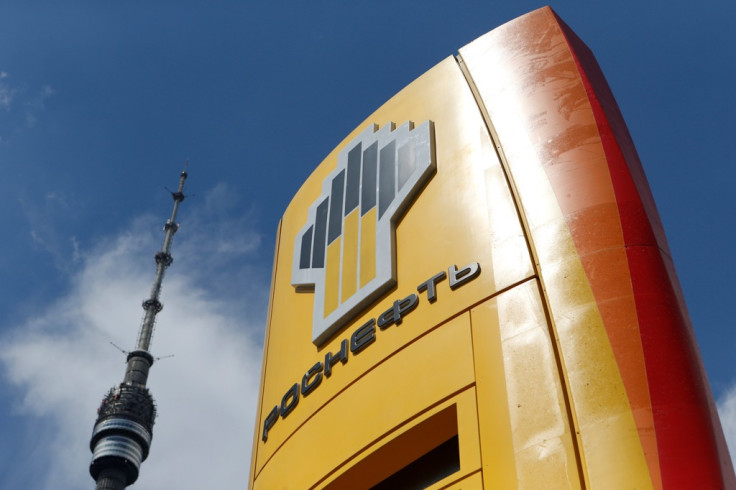Ukraine Crisis: New EU Sanctions Exclude Russian Oil Companies from Debt Markets

Russia's major oil companies have been confirmed as the main targets of a new raft of European Union sanctions.
The European Council President Herman Van Rompuy has said the sanctions, which ban majority state-owned oil companies for raising capital on European markets, will come into play over the next few days, with authorities monitoring the developments in the ceasefire, called last Friday (September 5).
"The entry into force through the publication in the Official Journal will take place in the next few days. This will leave time for an assessment of the implementation of the ceasefire agreement and the peace plan. Depending on the situation on the ground, the EU stands ready to review the agreed sanctions in whole or in part," Rompuy said in a statement.
It's expect that Rosneft, Transneft, the oil pipeline company and Gazprom Neft, the oil arm of the gas company Gazprom, will be hardest hit by these sanctions. Rosneft is by far the largest of these companies and had already shown its hand before the new sanctions were announced.
In August, Rosneft requested a $42bn (£25.2bn, €32.6bn) loan from the Russian government, having already been banned from taking loans with tenors exceeding 90-days from the EU and US markets. The new ban is expected to limit the debt-raising capabilities of the companies to 30-days, leaving real question marks hanging over its debt structures.
The company has been involved in some of the world's biggest trade loans in recent years, raising the bulk of its debt finance on the European markets.
In January 2013 it raised more than $16bn on the international markets to fund the purchase of TNK-BP. Among the lenders were Britain's Barclays and France's BNP Paribas and Crédit Agricole.
Two months later, mining giant Glencore Xstrata secured $10bn in prepayment finance for the purchase of crude oil from Rosneft. The finance was provided by a syndicate of international banks including Lloyds, HSBC, Barclays and Bank of America.
In August, Reuters reported that "Russia's syndicated debt market, worth $47.2bn last year, has dried up since hostilities broke out over the Ukraine. Just two corporate loans have been signed since March - a $1.15bn pre-export loan for Russian iron ore company Metalloinvest and a $450m unsecured loan for potash producer Uralkali".
Trickier still will be the refinancing of existing debt, a near annual practice for many Russian companies. It's thought that before the initial financial sanctions took effect in July, Russian companies and banks owed a total of $653bn to foreign lenders – more than half of the country's total outstanding corporate debt.
Its central bank calculated that £157bn of that comes to maturity in 2014. Rosneft alone has around $16bn in debt expiring both this year and next. If it is banned from raising finance on the EU and US markets, it's unclear how the gap in financing will be plugged.
Liza Ermolenko, an analyst at Capital Economics, said that the long-term impact of the sanctions "could be huge... the inability to borrow externally, coupled with tightening monetary conditions at home, will hit investment, keeping growth weak for the foreseeable future".
However, she told IBTimes UK that many of these companies were already effectively banned from international markets. The latest move will simply compound the issue. "Corporate bond issuance (in US dollar and euro) has already collapsed as concerns over the crisis and further sanctions have hit investor confidence," she said.
It is possible that the sanctions could be postponed if the ceasefire holds. Thus far there have been reports of shelling in and around Donetsk, with the Organisation for Security and Cooperation in Europe (OSCE), the body responsible for brokering the cessation in fighting, suggesting the situation was precariously balanced.
The new raft of sanctions can certainly be viewed as the latest example of a hardening of the EU's resolve. Earlier in the year, when the crisis was in its infancy, it seemed unlikely that the oil sector would be targeted. Russia provides the bulk of Europe's crude oil imports, with Germany – the bloc's dominant economy – most exposed. As the situation in East Ukraine has deteriorated, though, its escalation has been mirrored by the west's willingness to risk its own economy security to penalise Russia.
© Copyright IBTimes 2024. All rights reserved.






